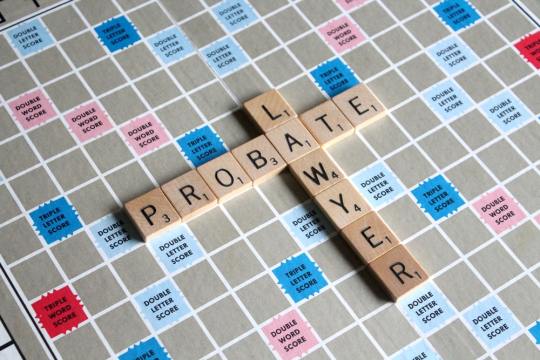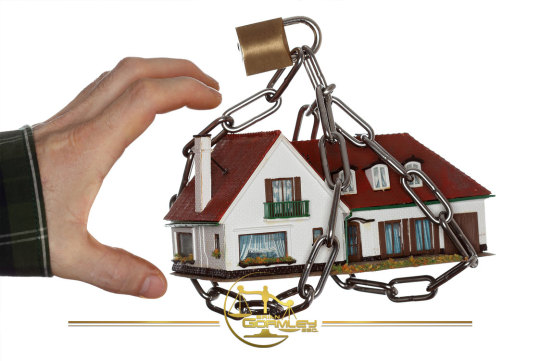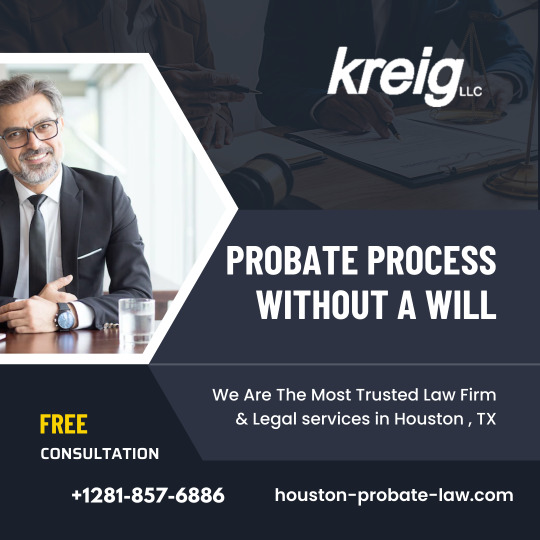#Probate process
Text
How Personal Representatives Can Avoid Hot Water in Estate Administration
The Gormley Law Office is pleased to present this information! We are a probate and estate litigation firm in Kensington, Maryland. We handle cases in Washington, DC and across Maryland. If you need help with a probate matter, call us today or send us a message through our website below. We’re here to help, and there’s no cost for the initial consultation.
We typically represent heirs who have…

View On WordPress
#Beneficiaries#Communication strategies#Compliance#Court petition#Documentation#Duties#Estate management#Estate planning#Executor tips#Heirs#Legal considerations#Legal pitfalls#Legal responsibilities#Personal representative#Probate Court#Probate process#Removal of role#Succession planning#Tips#Trouble avoidance
0 notes
Text
Navigate the Probate Process Without a Will with expert guidance. Learn more at https://houston-probate-law.com/probate-administration.
0 notes
Text
Advantages And Drawbacks Of Sharing The Small Print Of Your Estate Plan
Values of individual estates subject to federal estate taxes are as follows. Estate planning is the process of setting up how your property and property will be distributed upon your death. Through these plans, you presumably can guarantee your property are given to the people and organizations you care about. Additionally, estate plans can reduce the amount of taxes your estate and household will incur as soon as you’re gone. Estate planning is a necessary enterprise even for those who aren’t significantly rich, however it’s additionally a complicated one. Just as a sturdy energy of attorney permits somebody to make financial choices on your behalf, a health care energy attorney allows someone to make medical choices in your behalf.
estate plan
At death, your estate plan lets you preserve and control the distribution of your belongings in accordance with your objectives and goals. With that in thoughts, take some time to start out excited about your estate plan and the selections you want to make while you’re able. Then, work with a trusted attorney, tax professional, and financial advisor to develop a plan that ensures your ultimate needs are carried out when it issues most. Many individuals work with an estate planning attorney or monetary planner when creating their strategy. Doing so ensures your plan is legally binding and full with instructions for all your property.
If your estate is close to these levels, estate planning needs to be done, especially if assets will appreciate. First, no one likes to suppose about death, and your family members undoubtedly do not need to listen to you talk about your death. For many, our uneasiness with death prevents us from doing basic however necessary estate planning. If you don't have a will, the State of Ohio has legal guidelines that determine how your property will be distributed.
Special wants trusts which are set up by a third party that isn't the beneficiary are generally known as third-party trusts. SNTs which may be created/funded by the person who's the beneficiary are generally known as first-party trusts. These are much much less widespread, but enable disabled people a strategic choice to control their funds to ensure their government applications stay intact. These are usually used when a person now not has capability to make medical selections and requires someone to make them for them.
The data provided on this site has been developed by Policygenius for basic informational and academic purposes. We do our best to ensure that this information is up-to-date and correct. Any insurance coverage policy premium quotes or ranges displayed are non-binding. The last insurance coverage premium for any policy is set by the underwriting insurance coverage company following application. At the same time, you might have quite a bit to do as quickly as your plan turns into official.
For example, an estate plan may embrace a healthcare proxy, sturdy energy of attorney, and living will. The aim of an estate plan is to deal with how a person's estate is managed during their life and after their death. Estate plans are tailored to the person's wants and goals, so that they vary by particular person.
#probate#revocable living trust#probate process#death benefits#trust administration#probate attorneys#muniment of title#estate administration#estate plan
1 note
·
View note
Text
What Happens To Debt In Probate?
When someone passes away, their assets and debts are typically handled through a process called probate. During probate, a court oversees the distribution of the deceased person's assets to their heirs, and any outstanding debts are settled. In this blog, we'll take a closer look at what happens to debt in probate.
What Is Probate?
Probate is the legal process by which a person's assets are distributed after they pass away.
During probate, a court validates the deceased person's will (if they have one), appoints an executor to manage the estate, identifies and notifies the heirs and creditors, settles any outstanding debts and taxes owed, and distributes the remaining assets to the heirs.
Probate can be a lengthy and complex process, and it can involve a significant amount of paperwork and court appearances.
What Happens To Debt In Probate?
When someone passes away, their outstanding debts must be settled before their assets can be distributed to their heirs. The first step in settling the deceased person's debts is to identify all of the debts that they owed at the time of their death.
This can include:
Credit card debt,
Personal loans,
Mortgages and other loans secured by real estate,
Medical bills and other unpaid expenses,
Once the debts have been identified, the executor of the estate will work with the creditors to settle the debts. In some cases, the debts may be paid directly from the assets of the estate.
In other cases, the executor may negotiate with the creditors to settle the debts for a reduced amount or set up a payment plan to pay the debts over time.
If the deceased person had more debts than assets, the debts may not be fully paid off during probate. In this case, the remaining debts may be discharged, and the creditors may not be able to collect on the debts.
However, there are some exceptions to this rule. For example, if the deceased person had a co-signer on a loan, the co-signer may be responsible for paying off the debt.
What Happens To Joint Debts In Probate?
If the deceased person had joint debts, such as a joint credit card or a joint mortgage, the other person on the account will typically be responsible for paying off the debt.
For example, if a husband and wife have a joint credit card, and the husband passes away, the wife will be responsible for paying off the remaining balance on the credit card.
In some cases, joint debts may be partially discharged during probate. For example, if the deceased person had a joint credit card with a $10,000 balance, and the other person on the account had only used $5,000 of the credit, the remaining $5,000 may be discharged during probate, and the other person on the account may only be responsible for paying off the $5,000 that they used.
What Happens To Secured Debts In Probate?
If the deceased person had secured debts, such as a mortgage or a car loan, the creditor may be able to foreclose on the property or repossess the vehicle if the debt is not paid off during probate.
In some cases, the heirs may be able to assume the debt and take over the payments to prevent the property from being foreclosed or repossessed.
Conclusion
Probate is the legal process by which a person's assets and debts are distributed after they pass away. During probate, outstanding debts must be settled before the assets can be distributed to the heirs.
The executor of the estate will work with the creditors to settle the debts, and in some cases, the debts may not be fully paid off during probate.
If the deceased person had joint debts, the other person on the account may be responsible for paying off the debt.
About The Author
Smith Clea is a USA-based author on Legal issues related to estate planning, will and trust business law, and elder law. Smith Clea does her best writing on these topics that help users to find the best solutions to their FAQ on estate planning, probate laws, probate lawyers, and more about legal family issues. The author can be reached at https://rochesterlawcenter.com
0 notes
Text
Learn about #Probate Process and how it affects #RealEstate Sale here: https://www.sellingottawa.realestate/blog/156564/Probate+Process+And+Real+Estate+Sale
#probate#probate process#probate problems#whats probate#probate and real estate#probate real estate#ottawa#ottawarealestate#exprealty#ottawahousesforsale#barrhaven#ottawahomesforsale#exp#exp613#expottawa#kanata
0 notes
Text
Things you should know about probate in Ontario
If you're the executor of a will, you may be wondering what's involved in probating your loved one's estate. Well, it's a process that takes time and involves many steps. This article will walk you through everything that happens when a will is probated in Ontario.
1. Why do I need to probate a will?
Probate is the legal process of settling a deceased person’s estate. This is a legal requirement of any estate valued over the minimum threshold of the province that the deceased lived in.
If there is no need for probate (e.g., if there are insufficient assets), then this process may not apply to the deceased’s estate and therefore may not be necessary to distribute their assets according to what was written in the will.
2. What happens if there is no will?
If there is no will, the rules of intestacy of their province of residence govern who gets what. This can be very confusing and frustrating for the family members of a person who died without leaving a will.

You might wonder why it's necessary to have a will if you have children. A properly drafted estate plan allows you to designate someone trustworthy, reliable, and experienced with dealing with financial matters to be your executor (the person responsible for settling your affairs). This can save your loved ones from having to deal with lawyers on their behalf during an already difficult time.
If there is no executor named in the will, then Ontario’s provincial government may appoint one after probate has been granted if all assets aren't distributed within two years of death. This can lead to higher costs as well as delays in distributing funds, which could affect beneficiaries negatively if their circumstances change before they receive their share.
3. Probate can be an intimidating process, but it is manageable
Probate in Ontario is the legal process that allows you to manage the estate of a person who has died. It can be an intimidating process, but it is manageable.
It is important to get help from a lawyer with probate matters. If you do not go through this process correctly, there may be issues with your estate. In some cases, the government will step in and seize your assets if you don’t file all of your paperwork properly.
4. My parent died without a will. What do I do now?
What is the first thing to do? First, you should contact a lawyer as the lack of a will makes things considerably more complicated. A qualified lawyer can help you to figure out what you can do.

Remember, this is not a situation where there is a right or wrong answer. It is just information that will help you make choices about your parent's estate and its effect on you and your family.
We hope that by reading this article you have gained a better understanding of the probate process and what to expect when dealing with an estate. Follow all the necessary steps so the process will run smoothly. We wish you all the best in your journey!
0 notes
Photo




for @namchyoon 💙
#pls notice how i put the first gif for the fact that you're turning 23 🤯#also like these gifs are not it#but they are the first I have made in half a year ✌️😭#anywayyyyyy#HAPPY BIRTHDAY ANNAAAAAAA!!!!#welcome to your 23s and I hope that THE BEST memories#in your life have yet to come and that you just keep on enjoying life#being our strongest namjoon soldier on this site#you're such a blast!! irl and online#mwuah mwuah mwuah#sending you bear like hugs and loads of love 💖🎂#okayyy byeeee i'm out again#i'm still on tumblr probation for the rest of the year </3#tw: flashing#these are kind of fast cause i forgot how to process ts files and realised it too late 🙃
352 notes
·
View notes
Text
.
#i think i may actually literally fail this class#well. 'fail'#in this program you Cannot get less than a B or you have effectively failed#and youre on academic probation#so far I've eked by and just barely still have a A#but I seriously don't think I'm gonna get this assignment done#my brain just does not fucking understand its like hitting a wall#and if I do not do this assignment it will definitely drop to a B if not a C#luckily I have an appointment with a guidance counselor tomorrow#by coincidence#i wanted to talk about something else#but now i guess i can ask what the process is for re-taking a class...#because i think i am fucked#ograt
5 notes
·
View notes
Text
every so often i recall that will readings, a now antiquated practice, has been so normalized by media using it as a plot device that people think that's what happens. that it's real. it's not real okay? ppl do not sit down and read a 30+ page technical legal document out loud. it is a fun thing hollywood and books do for the drama and the narrative of it all
#currently#did anyone read that nancy drew book where there's a Will hidden in a clock#very fun#anyway iirc this practice came about bc people were illiterate.#i promise this isn't me being nitpicky for no reason lol i just think it's fun trivia#also honestly grieving and probate and dealing with loss is so hard that i think we could stand to make the process more transparent#every single tv show about law lies about how it works. hope that helps. 💜#so does maggie stiefvater's the raven cycle but we've already discussed that at length#this is not legal advice#i'm not a lawyer!!!!!! i just work here
13 notes
·
View notes
Text
Love getting infantilized as a neurodivergent trans guy (no)
#Reported my coworker who ticked all the what to not ask or tell a trans person possible questions/statements in one single conversation#and ruffled my hair for no fucking reason a few days ago#which was deeply infantilizing. im an adult#she got fired cause she was still on probation and her supervisor not satisfied#me reporting her sped up the process#i feel complicated about it i feel like shit#but at least i wont have to see her anymore
2 notes
·
View notes
Text
Four More Ways to Stop Inheritance Theft in Your Family
In our previous post, we talked about some ways you can prevent inheritance theft in your family. Since there are so many ways this type of theft can occur, the steps to take to prevent this from happening can vary. If you have a strained relationship with a parent or live a long distance away, it can be difficult to get access to many of the documents we mentioned in our previous post.
There are…

View On WordPress
#Asset Protection#Beneficiary Rights#Elder Law#Estate Disputes#Estate planning#Executor responsibilities#Family Legacy Planning#Family Wealth Management#Financial Security#Guardianship#Inheritance Theft#Legal documentation#Legal safeguards#Power of Attorney Abuse#Preventing Fraudulent Transfers#Probate Attorney#Probate process#Trusts and Estates#Undue Influence#Will Contests
1 note
·
View note
Text

Probate Process Without a Will
Navigate the Probate Process Without a Will with expert guidance. Learn more at https://houston-probate-law.com/probate-administration.
0 notes
Text
🦋
#so i do this thing where i. dont process emotions. correctly. lmao. which im sure is not extremely obvious. lmao.#when i was a kid i spent a lot of time in school counselor offices. lmao. &my high school counselor referred to this issue as being#an 'emotional cripple'. lmaoooo. she referred to the total fucking meltdowns that these times would culminate in as#'a dam bursting'.mao. which i guess was correct i spent a lot of time on conduct probation bc of those little... episodes. lmao.#... (&like all 4yrs on academic probation bc of the much longer stints of mental instability that makes effort of any sort impossible LMAO)#so anyway i started using media to force emotional response to speedrun the trial of processing my emotions#bc once you start crying or screaming or whatever it doesnt really matter what started it; work yourself up enough#&youll end up at the place where it all ends. &begins. &needs to be unraveled or chopped in half. lmao.#&i never stopped using this tactic bc if it aint broke dont fix it LMAO.#so after kicking the process off w millers books ive listened to warsan shires bandcamp almost nonstop#&just finished rewatching the hxh chimera ant arc lmaoooo.#ALMOST. IM ALMOST THERE. I KNOW IT. just a little more force&ill be balanced again i know it.#summer is here i dont have time for this anymore lmao.
2 notes
·
View notes
Text
Probate Process Arizona
Navigating the Probate process Arizona can be complex, but Arizonaprobatepartners.com offers expert guidance. From filing the petition to closing the estate, their seasoned professionals streamline proceedings. With a comprehensive understanding of Arizona probate laws, they assist with asset distribution and creditor claims, ensuring a smooth transition. Trust their expertise to alleviate the burden during this challenging time. For more details visit: https://arizonaprobatepartners.com/
0 notes
Text
The Differences Between Probate And Non-Probate Assets
Probate is the legal process by which a person's assets are distributed after they pass away. However, not all assets go through probate.
In fact, some assets are considered non-probate assets, which means they are transferred directly to the designated beneficiaries without going through probate.
In this blog, we'll take a closer look at the differences between probate and non-probate assets.
Probate Assets
Probate assets are assets that are owned solely by the deceased person and are not governed by a beneficiary designation or joint ownership.
These assets are subject to probate, which means they must go through the court-supervised process of transferring ownership to the heirs. Some examples of probate assets include:
Real estate owned solely by the deceased person
Bank accounts and investment accounts that are solely in the deceased person's name
Personal property, such as jewelry, artwork, and furniture
Business interests, such as a sole proprietorship or partnership
When a person passes away and they have probate assets, the assets must go through the probate process before they can be distributed to the heirs.
The probate process involves several steps, including validating the will, appointing an executor, settling any outstanding debts and taxes owed, and distributing the remaining assets to the heirs.
The probate process can be time-consuming and expensive, and it can delay the distribution of assets to the heirs.
Non-Probate Assets
Non-probate assets are assets that are transferred directly to the designated beneficiaries without going through probate. These assets are not subject to the court-supervised process of transferring ownership to the heirs. Some examples of non-probate assets include:
Assets held in a trust
Life insurance policies with a designated beneficiary
Retirement accounts with a designated beneficiary, such as an IRA or 401(k)
Bank accounts and investment accounts held in joint tenancy with right of survivorship
Assets held in a transfer-on-death (TOD) or payable-on-death (POD) account
When a person passes away and they have non-probate assets, these assets are transferred directly to the designated beneficiaries without going through probate.
This means that the distribution of these assets is typically much faster and less expensive than the distribution of probate assets.
Differences Between Probate And Non-Probate Assets
The main difference between probate and non-probate assets is the process by which they are transferred to the heirs.
Probate assets must go through the court-supervised process of transferring ownership to the heirs, while non-probate assets are transferred directly to the designated beneficiaries.
This means that the distribution of non-probate assets is typically faster and less expensive than the distribution of probate assets.
Another difference between probate and non-probate assets is the level of control that the deceased person has over the assets.
With probate assets, the deceased person has complete control over the assets during their lifetime, and the assets are subject to the probate process after they pass away.
With non-probate assets, the deceased person typically has some control over the assets during their lifetime, such as designating a beneficiary, and the assets are transferred directly to the beneficiary after they pass away.
Finally, there are some tax implications to consider when it comes to probate and non-probate assets.
Probate assets are subject to estate taxes and capital gains taxes, while non-probate assets are typically not subject to these taxes.
This means that non-probate assets can be a more tax-efficient way to transfer assets to heirs than probate assets.
Probate And Non-Probate Assets Are Two Different Types of Assets
Probate assets must go through the court-supervised probate process before they can be distributed to the heirs, while non-probate assets are transferred directly to the designated beneficiaries.
Non-probate assets are typically faster and less expensive to distribute than probate assets, and they can also be a more tax-efficient way to transfer assets to heirs.
It's important to understand the differences between probate and non-probate assets when creating an estate plan.
By identifying which assets are probate assets and which are non-probate assets, you can ensure that your estate plan is structured in a way that minimizes the time, cost, and tax burden on your heirs.
An experienced estate planning attorney can help you identify which assets are probate assets and which are non-probate assets and can assist you in creating an estate plan that meets your needs and goals.
Conclusion
Probate and non-probate assets are two different types of assets that are subject to different transfer processes.
It's important to understand the differences between these two types of assets when creating an estate plan, as they can have a significant impact on the time, cost, and tax burden of distributing your assets to your heirs.
With the help of an experienced estate planning attorney, you can create an estate plan that minimizes these burdens and ensures that your assets are distributed according to your wishes.
About The Author
Clea Smith is a USA-based author on Legal issues related to estate planning, will & trust business law, and elder law. Clea Smith does her best writing on these topics that help users to find the best solutions to their FAQ on estate planning, probate real estate, living trust vs will, and more about legal family issues. Author Smith Clea can be reached through https://rochesterlawcenter.com
0 notes
Text
#list hr policies#best hr policies to implement#basic hr policies and procedures#common hr policies and procedures#hr policy to employees#global hr policies#general human resources policies and procedures#must have hr policies#hr policies you must have#policies hr should have#hr policies and procedures for small business#implementing hr policies and procedures#humanresourcemanagement#humanresource#hrm#hrprocess#future of work#new employee#probation period#hr#probation process
0 notes